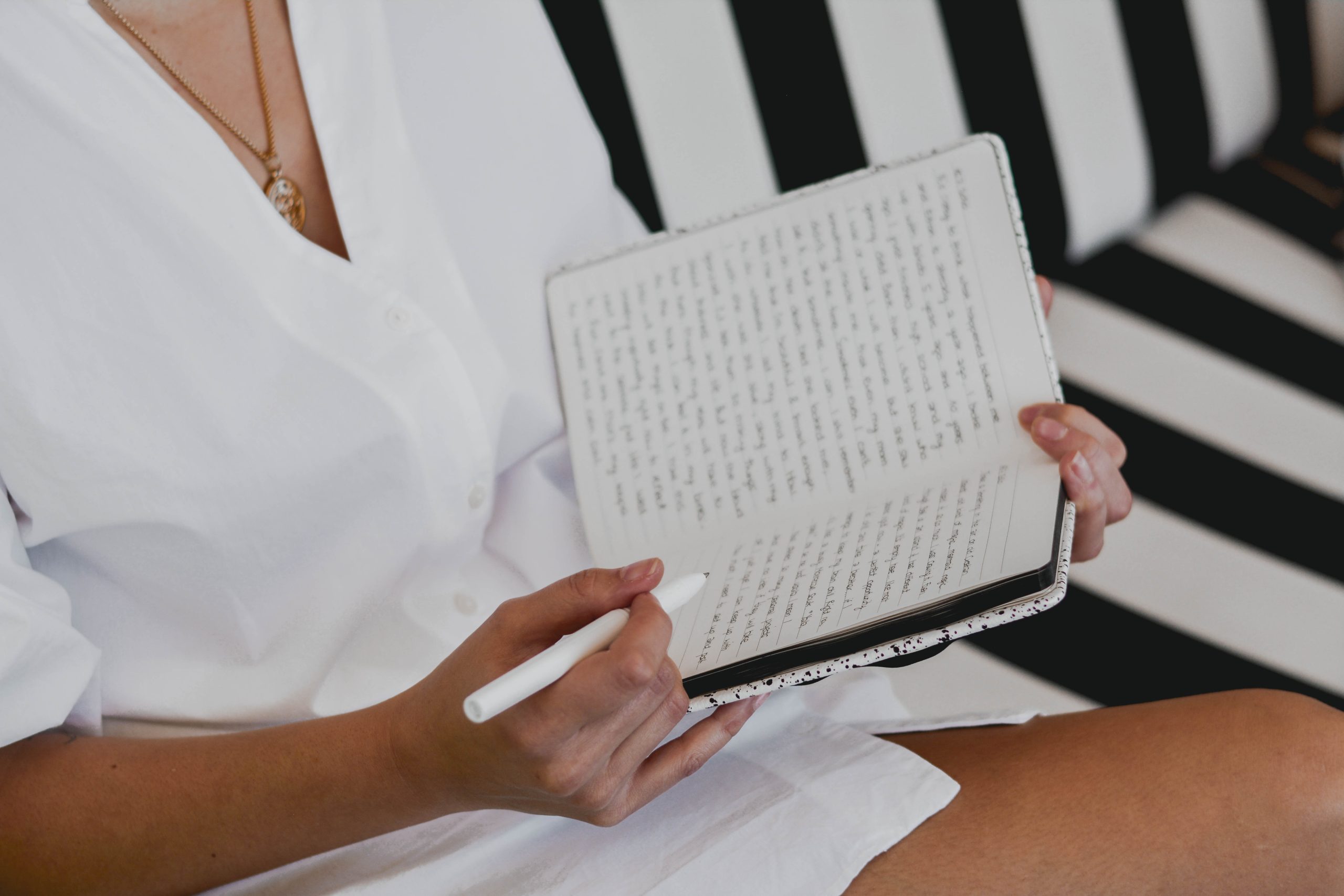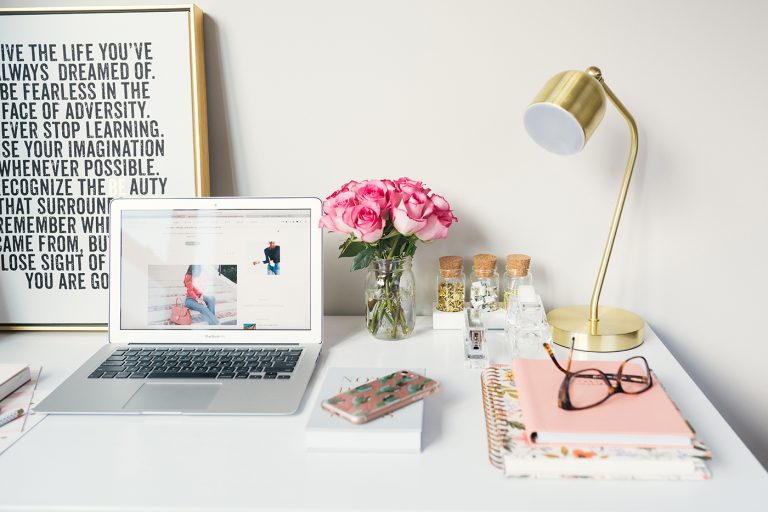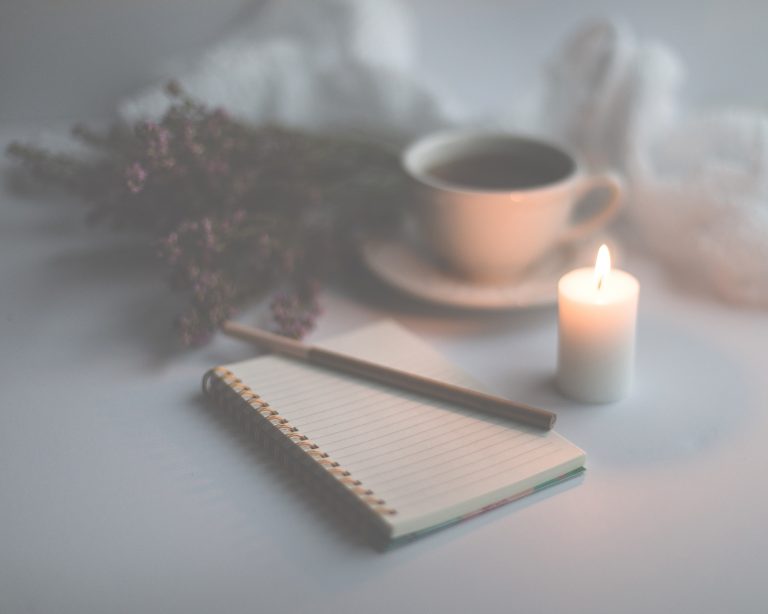How Journaling can Improve Your Life | Journaling 101 for Beginners
I know when you have a million things to do, the last thing you want to do is add something new like journaling. But if you can just give it a one or two week trial, you’ll begin to see the benefits! In this article I’ll talk about the benefits of journaling, how to get started journaling if you’re a beginner, and what to write in your journal. I’ll also link to some of my favorite resources at the end, plus you can download my FREE 7×10 guided journal.
The Benefits of Journaling:
- When you clear out your brain and get all of your ideas questions, problems, and to-dos visible on paper, you reduce cognitive overload on your short-term memory. You’ll have more working memory for the daily challenges of life.
- You’ll gain more perspective and self-awareness when you enter into daily conversation with yourself. By writing down your thoughts and feelings, you begin to see patterns, connect thoughts and ideas. Journaling can help you process your life, your choices.
- Your problem solving skills will be improved when everything is out on paper. It’s easier to look at the issues and sort through the pros and cons and work through the issues.
- You’ll experience more personal growth and development as you hash out your values and goals in your journal, and brainstorm ways to move your life in the right direction.
- You’ll become a better writer and communicator. Trying to express your thoughts regularly on paper will give you a fluidity with language that will spill over into other areas of your life.
How to Get Started Journaling
At its most basic, journaling is easy!
- Get supplies. All you need is a notebook and a pen! I love the Pilot V7 pens, they let me write fast, they don’t scratch. Lately I’ve been using small 6×8 journals from Barnes and Noble, but I’m switching back to this Vera Bradley spiral notebook next week.
- Try to establish a ritual and routine. If you are just starting out, you might want to try journaling at the same time every day, like in the 15 minutes before the kids come home from school, or in the morning as you drink your coffee like me. I journal in the morning after I’ve made my French press coffee, but I will also grab my journal whenever I need to empty my brain or think about something. I love journaling in coffee shops!
- Don’t give yourself rigid rules. There are a lot of journal purists who say you need to journal for 30 minutes, or three full pages, but I think that’s better for people who already love journaling and who want a challenge. When you are starting out, write until you want to stop. If you miss a few days, allow yourself to just jump back in when you want without thinking you’ve somehow failed at journaling.
- Write for yourself. This can be a little challenging for new journalists. It’s hard to write uncensored and unfiltered, to ignore the possibility that someone might read your journals. You’ll get the most benefit out of your journals though if you write for yourself and not for some external observer or posterity. You want your journals to be authentic and real, not an idealized version of yourself.
- Don’t judge what you write. Don’t judge your handwriting, don’t judge your grammar, don’t judge your thoughts. Just allow yourself to write and be yourself. Welcome it all, whatever you are feeling. Get stuff out so you can see it and process it. Don’t judge what you write, don’t judge how it looks. You aren’t going to show it to others, it’s for YOU. Don’t even have to read it, the goal is to just get stuff out and process.
What to Write in Your Journal
Mark the day.
I write the day of the week and the date. I might start adding the location. I like to put a box around the date so that it’s easy to find when I go back through my journals.
Brain dump.
I always begin with a brain dump. Sometimes I have something on my mind and I’ll jump right in, but other times I’ll begin with a prompt like “I am thinking of….” to get me started. You could also begin with “I am hoping…”, “I need to…”, “I am worried about…” and so on. Just let your thoughts flow out of your brain down your hand onto the paper. Don’t censor, just write. When you pause, you can repeat the prompt until you feel like everything is out of your brain. I find this very cathartic.
Then I’ll go back through what I wrote, to see if anything is actionable or needs to get on a calendar.
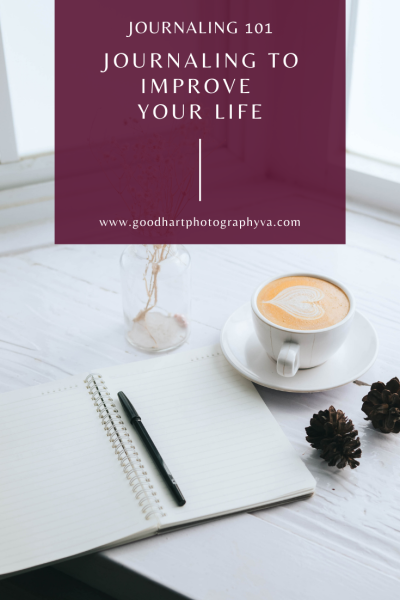
Extras.
Then you can add whatever else you want to your journal. Some of the things I include sometimes are:
- lists
- sketches
- mind maps
- decorations (washi tape)
I will also answer journal prompts from time to time.
Journal Prompts.
There are lots of ways to handle journal prompts.
1–You can respond to the same prompts every day, like “Three things I want to accomplish”, or “Three good things that happened to me today”.
2–You can answer a series of reflection questions about each day. Anne Laure Le Cunff has a great “+ – next”, journaling method where you write what went well, what didn’t go that great, and what your next steps are.
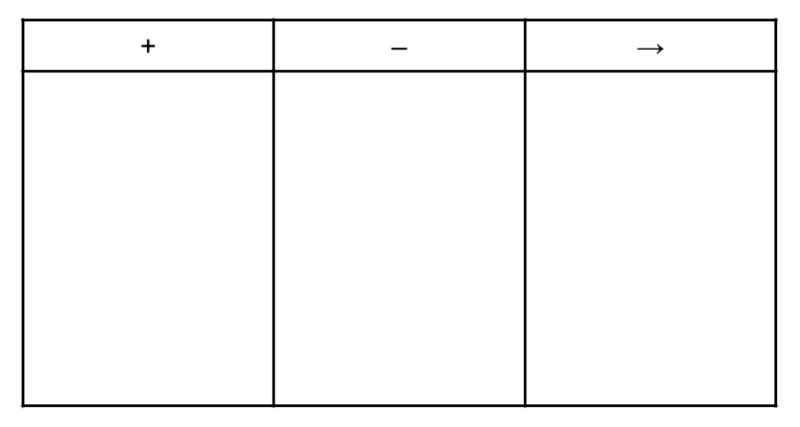
3–You can work through questions to process events or issues that are on your mind, like
- What happened?
- How did you feel?
- What did you learn?
- What are the implications?
4–Or you can find prompts on the internet (I have one here) or you can purchase a book of journal prompts for more inspiration. I am working on a journal prompt app and once I have it ready I’ll update this post!! I’m hoping to have prompts for self-awareness, for your life-story, for personal growth, and for creativity.
Related Articles
Create a Morning Routine to Jumpstart Your Morning
How to do Interstitial Journaling
What Do You Do With Your Journals?
I have found it so helpful to look back through your journals from time to time. It really helps me get a better sense for the rhythm of life, for the way feelings are like the weather, they come and go and change.
I like to highlight important insights or interesting reflections. I can see patterns, which gives me the power to change them. And I can see growth and evolution, how far I’ve come. I can see dots being connected, how things that seem random are all interconnected.
Some things are hard to read. I had a chaotic adolescence, and some very difficult things happened to me. But I realized that so much of what I took for granted about myself was actually LEARNED, and so I had the power to UNlearn it.
I think what you do with your journals is ultimately up to you. You can save them as long as you want, you can tear pages out that you don’t want others to see. You can destroy a completed journal every time you get a new one, or you can use them to mulch your garden. There is no right answer.
Resources
My 7×10 Guided Journal on Amazon
My FREE 7×10 guided journal (print it yourself)

